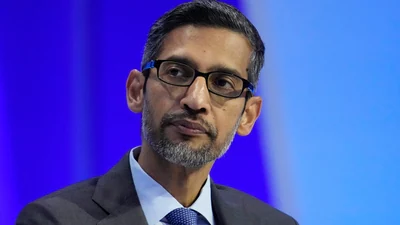
Google CEO Sundar Pichai highlights the company’s sustained emphasis on artificial intelligence (AI) since 2016, a period coinciding with the early stages of development for ChatGPT-maker OpenAI. Notably, Google researchers played a pivotal role in innovating the “T” component of GPT (Generative Pre-trained Transformer), a breakthrough enabling conversational search using extensive language models.
Despite Google’s initial oversight of the chatbot trend, Pichai remains undeterred, adopting a long-term perspective and acknowledging that Google has historically entered established markets after others. He views AI development as nascent, with ample opportunity for Google, a dominant force on the web, to excel.
However, Google’s pursuit of AI supremacy has encountered setbacks. The Gemini image generator, introduced in February, faced criticism for generating problematic images, underscoring the challenges of mitigating biases in AI systems. Pichai acknowledged the misstep and initiated a rebuild of the feature to enhance product quality.
Pichai anticipates re-releasing the revamped feature in the coming weeks, reaffirming Google’s commitment to continuous improvement. Nevertheless, the future of search, a core component of Google’s business, remains uncertain, particularly as AI-driven conversational search gains traction.
Addressing concerns about the evolving search landscape, Pichai emphasizes Google’s commitment to providing a seamless user experience that balances narrative responses with links for further exploration. As search drives significant revenue for Alphabet through targeted ads, Google aims to maintain its user-centric approach amid regulatory scrutiny, including a landmark antitrust lawsuit.
While facing strategic challenges and internal scrutiny, Pichai is focused on streamlining Google’s operations to prioritize AI development, including recent layoffs. Amid intensified competition with rivals like Microsoft, Pichai remains steadfast in his vision for Google’s future, confident in its potential to lead the AI race and shape the evolution of search technology.

